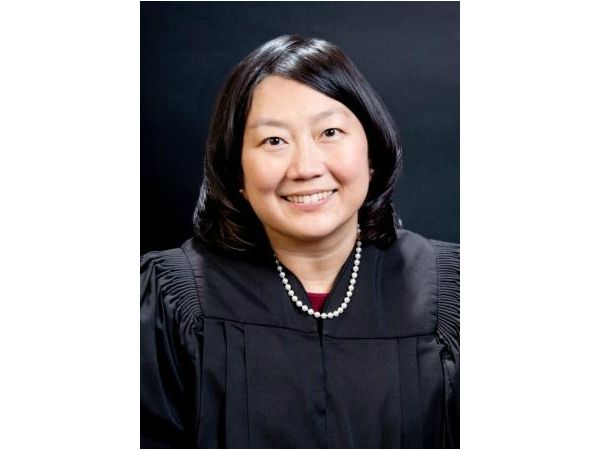By Carl Tobias
On December 10, the Senate recessed without conducting a final vote on United States District Judge Lucy Haeran Koh. This means that her February Ninth Circuit nomination will expire when the 115th Congress assembles on January 3. The upper chamber failed to provide Judge Koh’s ballot, even though she is an experienced, mainstream jurist, who enjoys the powerful support of California Democratic Senators Dianne Feinstein and Barbara Boxer, won bipartisan Senate Judiciary Committee approval in September and has languished on the floor ever since.
On December 31, Ninth Circuit Judges Diarmuid O’Scannlain and Richard Clifton concomitantly assumed senior status (a form of semi-retirement). This simultaneously brought the court’s vacancies to four and doubled its “judicial emergencies.” Judge Koh is a highly qualified, moderate jurist and the Ninth Circuit desperately needs all of its judges to rapidly, economically and fairly resolve the nation’s largest appellate docket, which the tribunal currently decides most slowly. Therefore, President Barack Obama must renominate Koh in early January when the new Senate convenes, while Senator Feinstein, who will become the Judiciary Committee Ranking Member in the 115th Congress, must prevail on the GOP leadership to afford Judge Koh swift panel and floor votes.
In February, Obama nominated Koh, lauding her “unflagging integrity and evenhandedness.” She is exceptionally qualified. Koh was an outstanding Assistant U.S. Attorney and highly regarded law firm partner. In 2008, Koh joined the California Superior Court bench. During 2010, the Senate approved her 90-0 as the first Asian American on the Northern District of California where she has earned a stellar reputation. Koh has professionally decided numerous important cases. Perhaps the most high-profile matter was the patent infringement lawsuit which Apple pursued against Samsung. She correspondingly resolved fairly claims brought by several thousand workers, who contended that large high-tech companies had conspired to restrict salaries by promising that they would not employ each other’s workers. A substantial majority of the ABA evaluation committee rated her well qualified.
Accordingly, Koh merits confirmation and she resembles additional competent, moderate, diverse Obama appointees. Courts that possess all of their members swiftly, inexpensively and equitably decide cases. Improved diversity enhances understanding and disposition of critical issues, such as those which involve abortion, discrimination and voting, while restricting biases that erode litigation.
Across Obama’s initial term and a half, the GOP nominally collaborated to approve judges. In 2015, after Republicans won a chamber majority, cooperation additionally decreased. Notwithstanding many promises, the Senate approved only a single court of appeals judge in 2015 and one last year. These numbers compare unfavorably with the ten circuit jurists whom the Democratic majority helped confirm over the last two years of the George W. Bush Administration.
The chamber’s 2015-16 appellate confirmation record leaves the judiciary with seventeen circuit, and forty emergency, vacancies today. Stalled appointments deprive tribunals of judicial resources which they need and myriad parties of justice. No court of appeals faces challenges more onerous than the Ninth Circuit.
The Senate must expeditiously finish processing Koh because it has a constitutional responsibility to grant her a confirmation vote, and several precedents involving 2007-08 Bush confirmees should govern. Koh is a judge, which means that the Senate already approved her and she has compiled a long, accessible record.
The Judiciary Committee thoroughly assessed Judge Koh and finally granted the nominee a hearing in mid-July. When introducing Koh, Senator Feinstein strongly lauded her impeccable qualifications and observed that she enjoyed much support from preeminent conservatives, especially Governor Arnold Schwarzenegger, who placed her on the Superior Court, and Michael McConnell, an ex-Tenth Circuit Bush appointee and Stanford Law School Professor. Senator Boxer called for Koh’s speedy approval because she would occupy an emergency vacancy and is an “American success story,” who would deliver justice for all.
Koh thoughtfully responded to members’ questions. Senator John Cornyn (R-Tx.) queried her about the decision that she rendered in the Google Gmail litigation, which he claimed had “effectively invalidated the Electronic Privacy Act.” Koh carefully answered that when she resolved the case, and today, the Ninth Circuit lacked any precedential opinions, so the jurist reviewed other federal and state court decisions which showed a split of authority. The nominee fully explained the reasoning process that she deployed in reaching a determination. Practically all of the remaining senators appeared satisfied with her responses.
The panel convened a September 15 debate and ballot. The committee rigorously discussed Koh, while Cornyn announced his opposition premised on her opinion in the Google case. However, the committee felicitously reported Koh 13-7 with four GOP senators, including the Chair, voting for her. She merited a swift confirmation debate and ballot. Nonetheless, the chamber adjourned on December 10 without considering the nominee.
On January 3, when the next Congress begins, Obama must renominate Koh. Senator Feinstein should ask that the Judiciary Chair with whom she has worked for two decades promptly set a second panel vote. Feinstein may want to remind him that her support for several controversial Bush appellate nominees, such as Brett Kavanaugh, William Pryor and Leslie Southwick, facilitated their confirmation. If Republicans persist in obstructing Koh after she captures panel approval, her champions must seek cloture. Once Koh reaches the floor, the members should engage in respectful debate and quickly vote.


